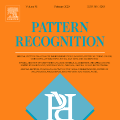Functional near-infrared spectroscopy (fNIRS) is a non-invasive, low-cost method used to study the brain's blood flow pattern. Such patterns can enable us to classify performed by a subject. In recent research, most classification systems use traditional machine learning algorithms for the classification of tasks. These methods, which are easier to implement, usually suffer from low accuracy. Further, a complex pre-processing phase is required for data preparation before implementing traditional machine learning methods. The proposed system uses a Bi-Directional LSTM based deep learning architecture for task classification, including mental arithmetic, motor imagery, and idle state using fNIRS data. Further, this system will require less pre-processing than the traditional approach, saving time and computational resources while obtaining an accuracy of 81.48\%, which is considerably higher than the accuracy obtained using conventional machine learning algorithms for the same data set.
翻译:功能近红外光谱仪(fNIRS)是一种非侵入、低成本的方法,用于研究大脑的血液流动模式。这种模式可以使我们对一个对象进行分类。在最近的研究中,大多数分类系统使用传统的机器学习算法来对任务进行分类。这些方法比较容易实施,通常具有低精确度。此外,在实施传统机器学习方法之前,需要有一个复杂的预处理阶段才能进行数据准备。拟议的系统使用基于双向LSTM的深层学习结构来进行任务分类,包括使用FNIRS数据进行心理算术、运动图象和闲置状态。此外,该系统需要的预处理比传统方法少,节省时间和计算资源,同时获得81.48 ⁇ 的准确度,这比使用常规机器学习算法对同一数据集的精确度要高得多。





